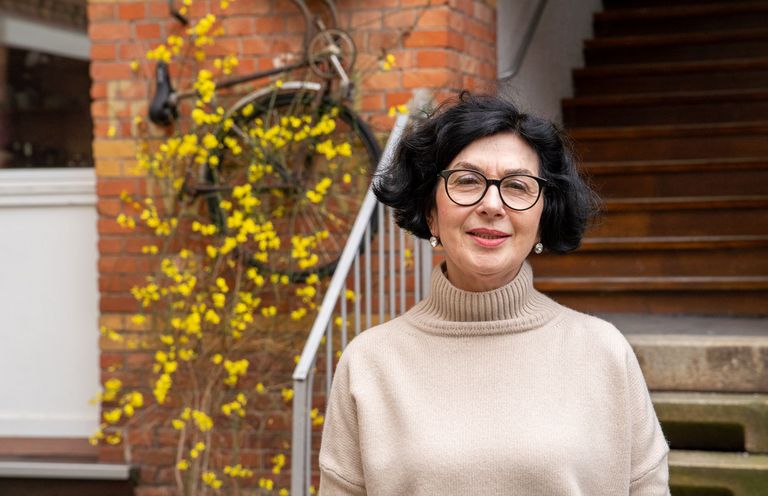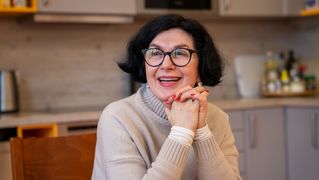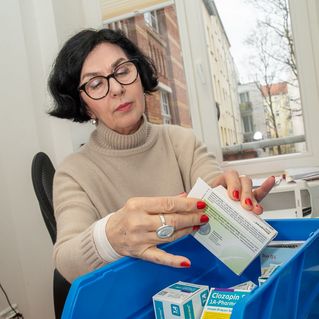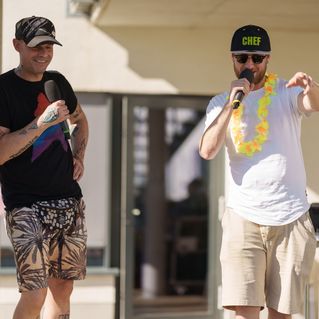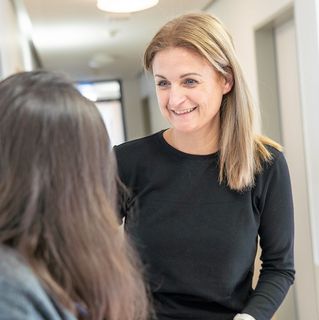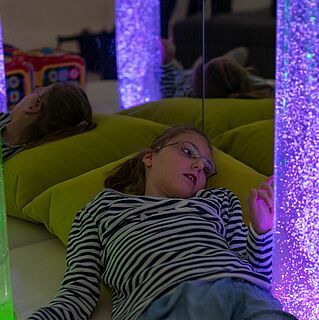For Senada Joldic, "home" is not just Berlin, but also Bosnia, where she was born and grew up. When the war broke out there, she fled the Balkans and found shelter in Berlin through her husband's aunt. "I always thought the war wouldn't last that long and I'd be back in three months. And now I've been here for 30 years."
A long period of time in which Senada Joldic has experienced many upheavals: "My employer's name has changed, but I've always stayed the same," says the nurse with a smile, summarising her 30-year career. Since starting out as a nurse in 1993, the Berliner has experienced several professional moves within the capital. In 2017, she made her last move for the time being to the "Warschauer Höfe inklusiv" residential facility in the hip Friedrichshain district. Senada Joldic has been looking after people with intellectual disabilities and mental illness in the former factory building for seven years now: "It was always like a new start, but every change has made me stronger."
